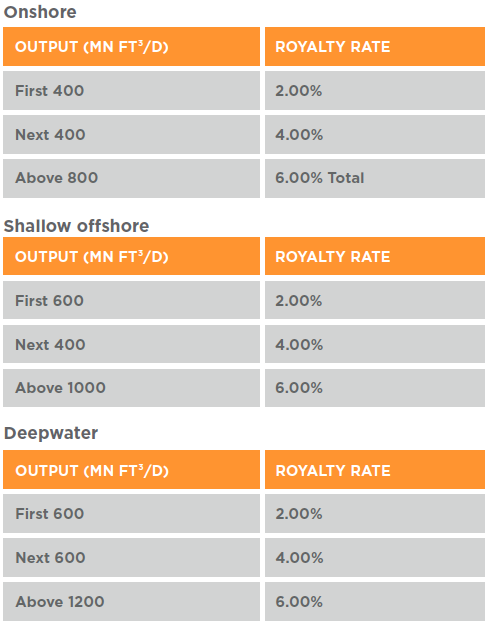[NGW Magazine] Nigerian Bill Is Made Digestible
Unable to pass the Petroleum Industry Bill for many years, the Nigerian parliament has carved it up into smaller bills, including different treatment of oil and gas. Now the separate elements must pass the acid test.
Following the division of the unmanageably challenging petroleum industry bill (PIB) into the petroleum governance bill (PIGB), the petroleum industry fiscal bill (PIFB) and the petroleum industry administrative bill (PIAB), the National Assembly in April successfully drafted the PIFB, which is the fiscal framework of the petroleum industry, as it relates to stakeholders, be they investors, industry players or host communities.
During a public hearing in June 2018, Nigeria’s senate president, Bukola Saraki, said that the objective of the PIFB is to enhance the country’s international competitiveness and make Nigeria a choice destination for oil and gas investors.
In an attempt at further simplifying the task, the National Assembly made sure that there was an appropriate separation of terms between the oil and gas sectors.
Policies were clearly defined for both industries on a separate basis, reflecting the different challenges.
Aside from this, some other activities have been tightened up. Companies used to pay next to nothing for flaring associated gas, but now it will be criminalised and companies caught flaring will have to pay significantly more.
Also, the bill gives clear provisions for royalty rates for gas production:
An oil and gas consultant at London-based Bargate Advisory Ekpen Omonbude spoke to NGW on the PIFB as it relates to gas.

NGW: What aspects of the bill would you classify as regressive, as it relates to gas?
Context is important. A fiscal regime for petroleum is considered “regressive” if the state’s share of pre-tax revenues doesn’t increase when the project becomes more profitable.
This is the case for the current Nigerian petroleum fiscal regime in all scenarios for oil or gas. The new PIFB has introduced an instrument that can adjust this – the Additional Petroleum Income Tax (APIT).
The proposed APIT for natural gas is 0.5% for every $1 increase above the threshold price of $6/mn Btu. If you consider an offshore deepwater gas field with an average lifecycle production rate above 1.2bn ft³/day, for example, you are likely to end up with a state take of about 37.6%.
This is the overall impact of royalty, PIT and APIT on 1mn Btu of gas, priced at $7.81/mn Btu and costs assumed by us for this rough analysis to be around 40%.
If you raise this price arbitrarily to $10/mn Btu, the state take goes up to 38.3%. In this case, the fiscal regime for natural gas is progressive. But if you lower the cost to say 30% and hold everything else constant, the state take falls 36.6%. This makes the fiscal regime regressive for natural gas.
Maybe it is a clever way of encouraging companies to be more cost-efficient. The government gets an increased benefit if profitability is the result of a price increase, and the company gets an increased benefit if the profitability is the result of cost reduction. So, you could say it is an incentive to keep costs down.
NGW: In 2017, the minister of state for petroleum resources, Ibe Kachikwu, said the bill, when drafted, "will encourage investments and market developments while putting in place competitiveness, reforms and cost efficiency in the gas sector." From your study of the bill, does this come into play?
It is quite generous in terms of the overall level of state take for deepwater offshore natural gas as briefly demonstrated previously, so it is quite competitive. It also has clever little provisions to encourage cost efficiency before companies can claim larger parts of their production allowances.
There are some inconsistencies that need to be cleaned up, and life would probably be a lot easier if some of the provisions weren’t too complex, but in principle, it looks a competitive offering.
NGW: Will this bill encourage efficient service delivery in the gas sector?
If, by service delivery, you mean gas utilisation domestically such as for the power sector and midstream operations such as gas pipelines, maybe. There are attractive provisions such as five-year tax-free periods, accelerated depreciation allowances, and no ring-fence on interest deductibility for any loans for midstream and downstream operations.
These measures should encourage investment in infrastructure for midstream and downstream operations. They would not necessarily guarantee efficient service delivery. This bit will require a bunch of other stuff in the natural gas utilisation framework to work well.
After the bill was successfully drafted, stakeholders like the host communities, the Nigerian Gas Association and several others, pushed an agenda forward, during the Senate public hearings, urging that funds realized from gas flare penalties should be paid to host communities.
This, they said, would be a way of reducing and even eliminating the possibility of gas pipeline vandalism, which often leads to stalled investments as well as power grid collapses. They reason that if the host communities were carried along in this manner, they would take it upon themselves to protect the gas pipelines.
Omono Okonkwo



